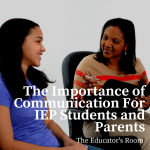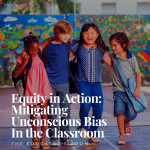By Maria Montalvo-Balbed
Often, principals or school leaders with whom I am working ask me to provide them with no more than three implementable strategies to make an ELL population successful. I wish it were that easy to name just three “things” to help students automatically develop great listening, speaking, reading, and writing skills. As we all know, educating any student, whether monolingual, bilingual, multilingual, or otherwise, is easier said than done; but teaching students to learn “to do school” in a second language and a different culture takes on added complexities.
Teaching students who are culturally and linguistically different from the majority of your classroom is doable, but it takes some serious intentionality, as authors Doug Fisher and Nancy Frey propose in their work. Learning to learn in another language and learning to use the tools of the language of school can be done, but it really doesn’t happen by chance. I highly recommend The Purposeful Classroom: How to Structure Lessons With Learning Goals in Mind by Fisher and Frey as an invaluable resource on this subject.
In reflecting on my own journey as an English language learner and drawing from my own practice as a student and teacher, I would like to share some practices that made a difference for me and which are also validated by volumes of research:
- Develop your students’ linguistic capital. In my own research, the use of the native language yielded high returns in learning “to do school.” Assigning a culture or language “broker” to students in schools is documented in my research as instrumental. This language/cultural mentor is usually another student who knows how to navigate school and is preferably bilingual (but not necessarily). This “buddy mentor” can help with the language overload and provide an inside view of how school really works at many different levels.
- Teachers modeling their thinking process is another strategy that yields high returns for ELLs. Even today, when I can safely say that I am skilled in both my mother tongue and English, I benefit greatly when I hear my coteacher (math) explain her thinking as she is modeling equation-solving. I always tell my students that this is like the teacher sharing a secret. This practice is not only beneficial because the teacher is modeling the way they think about something, but also extremely important because the teacher is modeling the language.
- Allowing students to either listen, view, or read about the subject ahead of the rest of the class. Students can do this in either the native or the target language. I view this as prepping for tomorrow’s lesson. In today’s world, this preparation is easy to do and creates a sense of responsibility in the student that they must obtain background knowledge to put in their “backpack” of tools they should bring to school.
- Using identity text practices to help the students develop their language skills, and most importantly, for connecting with students on a human level. Jim Cummins has conducted extensive research on this practice. The term identity text is used to describe a student product that can be presented in written, spoken, musical, dramatic, or combinations of multimodal form.
- Using language frames (see Fisher and Frey) is also a strategy that yields high returns in developing the language of school (academic language) for ELLs. As we all know, the Common Core State Standards advocate for deeper understanding of the need to develop the students’ ability to think critically and to express that thinking using appropriate language. However, it is imperative that our ELLs are taught the language of each subject by the content teacher, so all teachers are now language teachers. All teachers need to understand the language demands embedded in each standard, and language frames provide an avenue for teachers to scaffold the type of language they want students to use when expressing their thinking whether that is via speaking or writing.
ASCD offers more on classroom culture and more on teaching ELLs
Maria Montalvo-Balbed has more than 30 years of experience in education and has developed and taught numerous professional development classes in the areas of diversity, cultural literacy development, and authentic engagement of English learners. She has held positions as director of language, minority achievement specialist, and assistant principal at several middle schools in Fairfax County (Va.) and Fulton County (Ga.). She is a member of the ASCD Faculty and the Fisher and Frey Cadre, where she works with schools and districts to implement customized, research-based curricula and instructional strategies.




